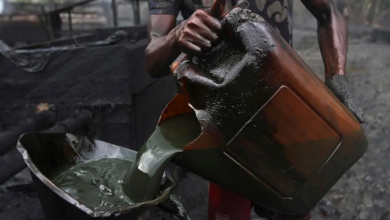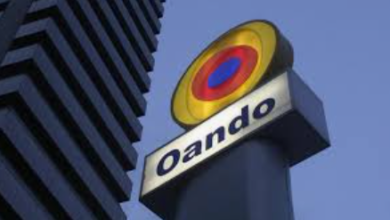Late Petroleum Industry Bill passage threatens N4tr marginal fields earnings

Petroleum Industry Bill
• FG looks to bid round to increase reserves
• Host communities insist on right of refusal
The Federal Government’s capacity to earn at least $10 billion or N4 trillion through the oil and gas industry, especially in the ongoing marginal fields licensing round, is dependent on a fiscal regime that will unlock about $30 billion capital stalled by delay in passage of the Petroleum Industry Bill (PIB), findings by The Guardian have shown.
Though The Guardian had last year reported that the Federal Government might earn nothing less than $5.7 billion if it succeeds with its ongoing bid rounds for 57 marginal oil fields being offered to investors, further findings showed that untapped reserves of 300 million barrels of oil from about 200 marginal fields could generate $14.1 billion or N4.314 trillion for government.
With a budget deficit of N5.2 trillion for the current fiscal year, such inflow may help reduce exposure to Bretton Woods institutions for additional loans, thereby reducing Nigeria’s debt burden currently at N32.2 trillion.
However, growing uncertainties about crude oil exploration due to concerns over environmental issues of fossil fuels, funding gaps, legal issues, growing insecurity amidst other challenges had capped productions from marginal fields at about 51 million barrels yearly.
Like the downstream sector, the upstream sector equally awaits the outcome of the PIB for clear decisions on investments.
Affirming potential earnings from the fields, energy research and consultancy firm, Wood Mackenzie, noted that the 25 largest oilfields have the potential to unlock $9.4 billion of investment over the first five years and generate over $38billion over the life of the fields.
It however warned that investment levels in the upstream sector would stay flat at about $300 billion this year, as projects will increasingly be judged on their environmental, social and corporate governance (ESG) credentials.
Further, oil producers consider the PIB as the one piece of legislation that could overhaul Nigeria’s oil sector and spur much needed investment in Africa’s biggest oil industry. While oil majors are not a part of the marginal field bid round, indigenous participants need collaborations from investors to finance field development and production.
Having set an initial target of 2020, the PIB suffered another setback pushing its potential passage till mid 2021, according to the National Assembly. The earlier Deep Offshore & Inland Basin PSC (Amendment) Act remains a bone of contention among operators, with many stalling their Final Investment Decisions (FIDs) on key projects.
NIGERIA’s oil industry regulator, the Department of Petroleum Resources (DPR), said on October 13 that the country was seeking to increase its oil reserves, including condensates, substantially to 40 billion barrels by 2025.
Nigeria’s crude reserves, which stood at 38 billion barrels in 2015, have steadily declined over the past five years due to a combination of factors, including lack of funds, security challenges in the main oil-producing Niger Delta region and uncertainty over government’s oil sector reform that has stifled investment in new exploration programmes, industry analysts say.
Nigeria’s oil reserves were 36.8 billion barrels in January last year, a drop of 0.2 per cent from 2019, with the country missing a target of growing reserves as investment dries up.
Although Nigeria approved the development of NLNG train 7 last year, the African Energy Chamber (AEC) warned that the upstream gas developments that were planned to supply feed gas to this development might now take a back seat, if reforms were not carried out.
Nigeria had previously set the target of 2020, and later 2023, to raise its oil reserves to 40 billion barrels and crude oil production to three million b/d.
Almost two decades without any bid round, DPR in June last year announced commencement of oil bid round, offering about 57 fields located on land, swamp and shallow offshore terrains in the Niger Delta region up for auction, which it said would bolster its oil reserves and revenues battered by slump in global prices.
The marginal fields are spots discovered and left unattended for no less than 10 years from the date of discovery, or fields that leaseholders may consider for farm-out as part of portfolio rationalisation, according to the DPR.
Indigenous oil companies or independent producers handling the fields only produced 3,988,244 barrels in August 2019, 6,387,716 in September, 2,947,843 in October, 3,851,588 in November and 2,863,809 in December 2019.
In 2020, the marginal field operators in January produced 2,693,737. They produced 4,504,573 barrels of oil in February, 4,523,944 in March, 4,780,105 barrels in April, 5,003,806 in April, 4,063,552 in June and 5,576,863 in July. These brought their production to 51,185,780 between August 2019 and July last year.
The Nigerian Petroleum Development Company (NPDC) alone produced about 62,804,610 barrels of oil in the same period. From December 2018 to November 2019, the companies produced 55,793,614 barrels against the 60,852,643 barrels produced by NPDC.
Last week, DPR disclosed it had shortlisted 161 successful companies to advance to the next and final stage of the bid round process for the marginal oilfields. But stakeholders are worried over the ability of the players to turn around the nation’s stagnating reserves and daily production given the uncertainty in the oil and gas sector.
Exploratory activities are hitting the deadlock. Over $160 billion worth of upstream projects have been in limbo in the country. With the shocks from COVID-19 pandemic, more oil and gas companies are cutting investment as investors look to finance more of energy projects, especially renewable.
Even for companies that would focus on gas development, Wood Mackenzie had insisted that gas demand would come under pressure from breakthrough investment in renewables, energy storage in the power sector, efficiency improvement and adoption of new technologies in non-power sectors.
The think-tank had noted that green hydrogen would become a game changer in the long-term as it would emerge as a key competitor to gas consumption in the next two decades while achieving a 10 per cent share in the total primary energy demand by 2050.
In Nigeria, where fiscal and regulatory uncertainties remain a challenge as game-challenging regulations like the Petroleum Industry Bill never made any progress for decades, funding challenge has been projected to compound prevailing problems, thereby limiting the capacity of investors to turn around fields.
A former President of Nigeria Association of Petroleum Explorationists (NAPE), Abiodun Adesanya, had linked challenges faced by marginal fields developers to funding, stressing that government counterpart funding for some of the projects could also be a challenge.
Partner and Head of Odujinrin & Adefulu’s Energy Practice & Real Estate and Mining Teams, Adeoye Adefulu believed that a lot of the people, who were awarded the first set of marginal field licenses lack financial and technical capacity, adding that they saw the licences as an end in itself.
Adefulu said: “The companies did not have the money. They were not prepared. The companies also had board issues. Most people thought the marginal field licence was the end in its self. A lot of people do not have the technical and financial capacity.”
Nigeria’s weak fiscal and regulatory climate were a major concern for the experts, who noted that although the landscape for indigenous participation in the oil and gas sector had changed, global challenges could affect investment in the field.
To him, while investors still go for fossil fuels, there are only interests in clear-cut environment where they can easily get returns for their money.
“Painfully, the investment climate in the country to many stakeholders remains a major challenge that could hamper or deter any investor. Nigeria has not done well in sanitising the investment environment as projects remain only in the pipeline waiting for the sector to be clear,” he added.
To avoid some of the issues faced with the initial licences, Adefulu noted that transparency remained critical, adding that there was need for bidders to have capacity financially and technically.
While there are challenges all over the world, he sees opportunities for Nigeria but noted that investors are concerned about the governance of the sector, stressing the need for bidders to have clear agenda with their partners.
To the Lagos Chamber of Commerce and Industry (LCCI), the PIB should seek to protect existing investments from value erosion, adding that the assets and operations from such investments are the foundation upon which new projects can be built.
The Chamber, through its Director-General, Dr. Muda Yusuf, raised concerns about some sections of the bill that may affect the industry if not addressed, adding that the regulation that will be passed should be one that delivers value to the people.
“The current Bill marks positive steps toward achieving its stated goals. However, some of these improvements appear insufficient to deliver the true value to Nigeria, which the Bill aims to achieve. Some provisions in the bill could adversely affect the growth of the industry and the overall economy.
“With the COVID-19 pandemic potentially putting at risk the viability of ongoing and future projects and driving fierce competition for scarce investments around the world, Nigeria’s petroleum industry faces many country-specific challenges including Joint Venture Funding and Arrears, regulatory overlaps, insecurity and inadequate infrastructure for domestic gas development”, he added.
MEANWHILE, some members of Niger Delta communities have insisted on right of first refusal, saying, further neglect of the region would be provocative and unacceptable.
The National Publicity Secretary of the Pan Niger Delta Forum (PANDEF), Ken Robinson, said the region has companies and people with the capability and capacity for marginal field ventures, hence the need for government to give them right of first refusal.
He said: “Earlier when this move started, PANDEF asked that the right of first refusal be given to our people and we are aware that some of our people also indicated interest by filling documents in the first bidding process. We don’t have the list of those that have been shortlisted yet, but if our people are not included measurably, it will be completely unacceptable, it will be highly provocative and we will not be surprised if some reactions followed the outcome if our people are not given special concession because it is our right.”
Similarly, the National Coordinator of South-South Elders Forum, Chief Anabs Sara-Igbe, said, one of the major agitations of the region had been the participation in the oil block.
He said, “Oil block is more than anything anybody can offer to us, so we believe that we should be involved in the participation of the oil activities in our area. The Oil Mineral Act has allowed northerners to be involved in the mining of minerals within their areas, but here we are not allowed, while they jail us for the oil in our areas, those in the north have not been arrested or jailed for mining their minerals.”
Also speaking, a renowned Niger Delta activist, Ms. Ann Kio Briggs, said agitations of the region had been against injustice, which forced armed youths to the creeks.
Source: t.guardian.ng





